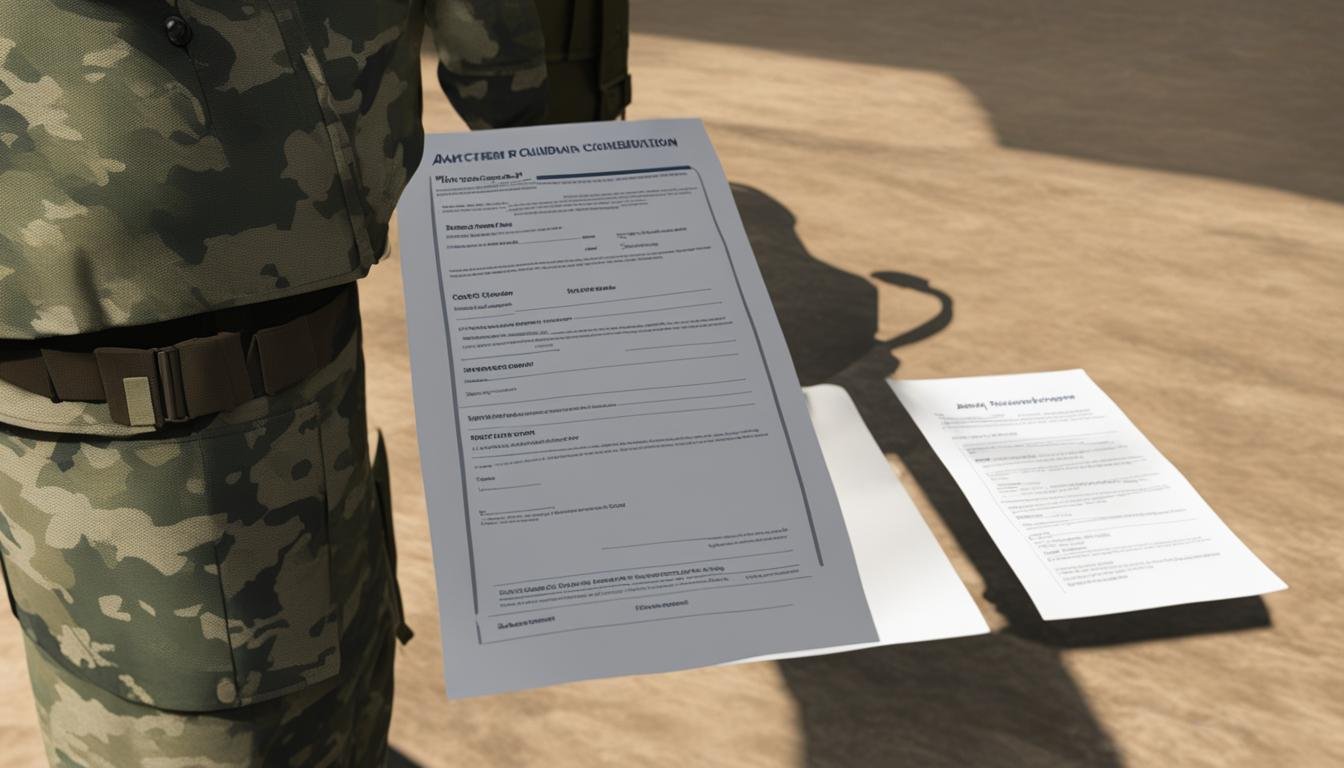Transferring military credits to higher education institutions can be a daunting task for military veterans. They face a unique set of challenges, including difficulties with credit evaluations, navigating the transfer process, and understanding the equivalency of military education.
Studies conducted by researchers, such as Dr. Brian Borsari from the San Francisco VA Health Care System, have identified additional obstacles that veterans may encounter. These include adjusting to campus life, interacting with non-veteran students, and dealing with mental health issues like PTSD. To address these challenges, educational institutions must provide tailored support services and resources to meet the needs of student veterans.
Key Takeaways:
- Military veterans face challenges when transferring their military experience credits
- Difficulties include credit evaluations, navigating the transfer process, and understanding the equivalency of military education
- Additional obstacles veterans may face include adjusting to campus life and dealing with mental health issues
- Educational institutions should provide support services and resources specifically tailored to student veterans
- Research accredited institutions recognized by the U.S. Department of Education and take advantage of dedicated advisors and resources
Challenges in Credit Transfer for Veterans
One of the main challenges that veterans face in credit transfer is the evaluation of their military experience credits. The American Council on Education provides recommendations for the transferability of military experience, but each institution has its own process for evaluating and awarding credit.
Veterans may also face difficulties navigating the credit transfer process, including requesting transcripts from multiple institutions and obtaining the necessary documentation to certify their military benefits. This process can be time-consuming and complex, requiring veterans to gather information from various sources and ensure that all requirements are met.
Additionally, veterans need to understand the equivalency of their military education compared to traditional academic programs. This lack of clarity can make it challenging for veterans to determine how their military training and experience translate into college credits. It is important for educational institutions to provide clear guidelines and resources to help veterans assess the value of their military education and ensure a smooth transfer process.
“The evaluation of military experience credits can be a confusing and frustrating process for veterans,” says Dr. Brian Borsari, a clinical psychologist at the San Francisco VA Health Care System. “Institutions should work towards simplifying and streamlining this process to better support our student veterans.”
Table: Challenges in Military Credit Transfer
| Challenges | Impact |
|---|---|
| Institution-specific credit evaluation processes | Creates inconsistency and confusion for veterans |
| Navigating the credit transfer process | Time-consuming and complex, requiring multiple steps and documentation |
| Lack of clarity on military education equivalency | Makes it challenging for veterans to determine credit value |
By addressing these challenges and providing better support services, educational institutions can facilitate a smoother credit transfer process for veterans. This includes offering dedicated staff, resources, and services to assist veterans in evaluating their military education and navigating the transfer process.
Overall, navigating the credit transfer process for veterans requires an understanding of the unique challenges they face, as well as efforts from institutions to streamline the evaluation process and provide clear guidelines. By doing so, educational institutions can ensure that veterans receive the credit they deserve for their military experience and support their successful transition into higher education.
The Benefits of Military Credit Transfer

Military credit transfer offers numerous advantages for veterans pursuing higher education. By successfully transferring their military experience credits, veterans can save time and money, accelerate their degree completion, and build upon their existing knowledge and skills. Here are some key benefits of military credit transfer:
- Fast-track your degree: Transferring military credits can help veterans expedite their degree completion. By recognizing the knowledge and skills gained during military service, educational institutions can award college credits, reducing the number of courses veterans need to take. This can save valuable time and enable veterans to earn their degree more quickly.
- Save on tuition costs: Military credit transfer can also result in significant cost savings. By receiving credit for prior military education and training, veterans may be able to reduce their overall tuition expenses. This is especially beneficial for veterans utilizing military education benefits, such as the GI Bill, as it maximizes the value of these resources.
- Maximize workforce readiness: Military education and training are often highly specialized and aligned with specific career paths. By transferring military credits, veterans can capitalize on their previous training and seamlessly transition into civilian professions. This not only enhances their workforce readiness but also positions them as highly skilled and qualified candidates in the job market.
- Build on existing knowledge: Military credit transfer allows veterans to build upon the knowledge and skills they acquired during their service. By receiving credit for their military experience, they can focus on more advanced or specialized coursework, deepening their understanding in specific subject areas. This enables veterans to pursue academic and professional goals that align with their interests and strengths.
These benefits highlight the significance of military credit transfer in supporting veterans’ educational pursuits. By recognizing and valuing their military experience, educational institutions can empower veterans to achieve their academic and career goals more efficiently.
| Benefits of Military Credit Transfer |
|---|
| Fast-track your degree |
| Save on tuition costs |
| Maximize workforce readiness |
| Build on existing knowledge |
Overall, military credit transfer opens doors of opportunity for veterans, allowing them to leverage their military experience and seamlessly transition into the world of academia. By capitalizing on the benefits of credit transfer, veterans can achieve their educational objectives more efficiently and successfully.
How Can Military Experience Credit Transfer Challenges be Addressed More Quickly?
Expediting military credit transfer can be achieved by streamlining the evaluation process. Establishing clear guidelines and resources for evaluating military training and experience can help universities and colleges assess and award credits more efficiently. Additionally, creating dedicated personnel or departments to handle military credit transfers can speed up the process.
Conclusion
Navigating the challenges of credit transfer for veterans can be a complex and overwhelming process. However, with the right strategies and support, you can successfully transfer your military experience credits and continue your educational journey.
It is crucial for educational institutions to recognize the unique needs of student veterans, particularly in terms of credit evaluation. Clear and well-defined credit evaluation processes are essential for veterans to understand how their military training and experience translate into college credits. By establishing transparent evaluation criteria, institutions can provide veterans with the clarity they need to make informed decisions about their academic paths.
In addition to clear credit evaluation processes, educational institutions should also offer dedicated support staff and resources to facilitate a smooth transition to campus life. Having knowledgeable advisors who can assist with credit transfer, VA certifying representatives who can guide you through navigating military education benefits, and accessibility services for students with service-related challenges can greatly enhance your educational experience.
By addressing these challenges head-on and providing the necessary support, educational institutions can help veterans fully utilize the benefits of military credit transfer and achieve their academic goals. Remember, you are not alone in this journey, and with the right strategies and resources, you can overcome the hurdles and successfully transition into higher education.



